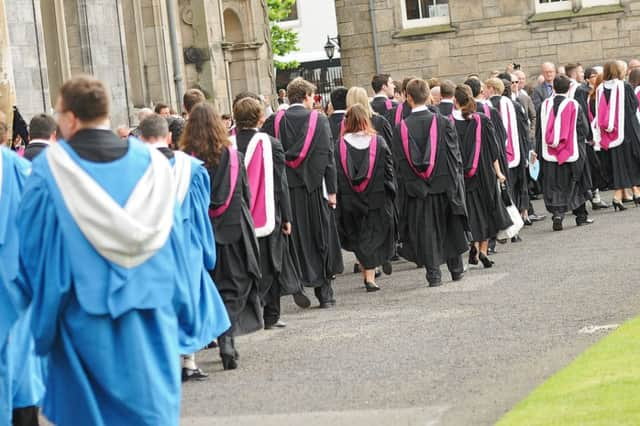Chris Marshall: Scotland can do without frat brats


Despite agreeing to admit female members for the first time in 2012, the Kate Kennedy Club still calls on one of its male number to cross-dress as the eponymous Kate for its historical procession through the town. While the club has continued to endure, selective societies for a privileged elite remain rare in Scottish universities. However, there is worrying evidence that a new breed of American fraternities are attempting to gain a foothold in some of our leading institutions.
Last month, the student newspaper at Edinburgh University reported that the controversial Delta Kappa Epsilon (DKE) fraternity had established a chapter in the city. The story was followed up by sections of the national press, providing unwelcome headlines for a university keen to promote an inclusive environment for all its students.
Advertisement
Hide AdAdvertisement
Hide AdFounded at Yale in the 1850s and counting former US president George W Bush among its members, the DKE fraternity was found to have “threatened and intimidated” other students in 2011 when those taking part in an initiation marched through the Ivy League university’s campus chanting sexually aggressive phrases such as “no means yes”. The fraternity was later suspended at Yale after videos of the pro-rape chants appeared on YouTube.
The DKE said its Edinburgh chapter would attract only “men of high character” and would be a “credit to the university”, but others, including the vice-president of the students’ association, expressed concern.
Last year, the same students’ association banned a former No1 single, Robin Thicke’s Blurred Lines, from being played in its venues, claiming it promoted an “unhealthy attitude towards sex and consent”. It followed an episode at Glasgow University where two male students were accused of verbally abusing three females during a debate, subjecting them to what was described as misogynistic abuse. The men were cleared of the charges following a university investigation.
There’s always been laddish behaviour in Scottish universities, but the promotion of this through secretive societies and the growth of “hazing” – humiliating initiation ceremonies – should be resisted. There is already evidence of fraternities and sororities recruiting at St Andrews, as well as Edinburgh. While our top universities have always been keen to attract fee-paying international students – St Andrews has seen a big rise in American undergraduates since William and Kate attended – we should be less enthusiastic about importing foreign fraternities.